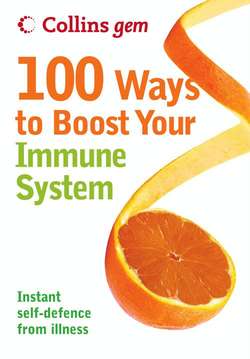Читать книгу 100 Ways to Boost Your Immune System - Theresa Cheung, Theresa Cheung - Страница 30
7 Good coffee habits
ОглавлениеCoffee doesn’t help your immune system do its job efficiently, so keep your coffee consumption down to no more than two cups a day.
The caffeine in coffee can temporarily boost alertness, perk up performance and possibly even improve concentration. But before you pour yourself another cup, experts say it’s important to remember coffee’s main ingredient, caffeine, is a drug and not a nutrient necessary for good health, such as vitamins and minerals. Caffeine can also dehydrate you and leach important immune-boosting nutrients, such as bone-boosting calcium, out of your body. In fact, too much caffeine may also lead to health problems, such as high blood pressure, brittle bones, sleep disorders and just plain irritability.
You don’t have to stop drinking coffee altogether, but, if you are drinking more than three cups of coffee a day, you do need to cut it down to one or two cups. Here are some tips to make sure your coffee-drinking habits are healthy:
When you drink your coffee, make sure you add an additional glass of water to your daily water intake per cup of coffee to avoid its dehydrating effects.
Drinking one to three cups of coffee a day (up to 300 mg of caffeine) does not seem to have any negative effects in most healthy people. However, pregnant women, children, people with heart disease or peptic ulcers and the elderly may be more susceptible to the effects of caffeine, and are therefore advised to restrict their intake.
Be aware that the caffeine content of coffee varies widely depending on roasting and brewing methods, as well as the size of the cup from which you’re drinking. For example, a recent study showed that a 475 ml (16 fl oz) cup of the house blend at a leading coffee chain had a massive average of 259 mg of caffeine.
Put back some of those lost nutrients by adding two tablespoons of milk to your coffee or making your espresso a latte.
Coffee is the main source of caffeine for many people, but other items, such as soft drinks, tea, chocolate, and cold and headache medicines also contain caffeine and can add substantially to your daily caffeine quota. As for chocolate (another source of caffeine), make sure that the type you eat is quality dark chocolate, containing at least 70 per cent cocoa solids.
Some people feel the buzz of caffeine more than others. Listen to your body and know when to say ‘no’ to that extra cup of coffee, even if you are surrounded by people who drink it like water.
It is important to bear in mind that coffee drinkers who skip their daily fix may experience temporary caffeine withdrawal (usually in the form of a headache or drowsiness), but that these symptoms will disappear within 24–48 hours.
